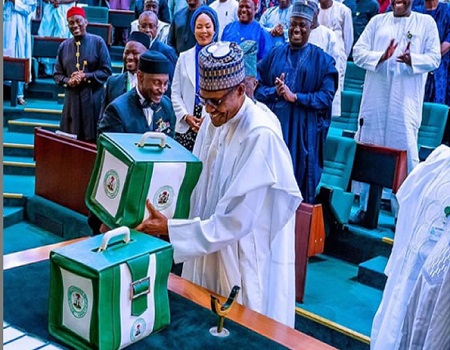Taxes cater for many things that make life worth living. They fund the nation – be it healthcare, education, security, government bureaucracy etc.
How to get money from citizens and corporate concerns is, however, a most difficult issue faced since ancient times by governments. Many have used coercive means. In the Middle Ages, kings and princes charged peasants and farmers part of their harvest; and of artisans, of their works. In exchange for the taxes, they had walls built around the community as a form of security, and made roads for the transportation of products and raw materials.
So, holding the position of the chief tax officer of a nation is no comfort zone. It takes bravery. The Holy Bible records that when king Rehoboam sent Adoram on such errand he met a gruesome end. If the job was difficult then, it still is now in any modern economy.
The American Revolution had its beginning in taxes.
Generating taxes for governments in modern times has become something of an art form. You require some unique and superior innovative thinking as opposed to crude force. Paying tax is not particularly pleasurable anywhere in the world for anyone who has expended time, energy and other resources to earn the income.
For Nigeria, the discovery of oil seems to have changed public psyche about tax. Before the discovery of oil, the mainstay of the economy was agric. You had cocoa in the west, groundnut in the north and palm oil in the east. The government then generated taxes by taxing farmers.
But with oil bringing “cheap” money, emphasis gradually shifted from agriculture and production to rents from crude. Government at all levels in Nigeria became heavily reliant on revenue from oil.
However with the slow-down in the global economy and the continuing fluctuation of oil prices, the government of Nigeria has been making it abundantly clear that reliance on oil revenue is no more sustainable. Hence, emphasis is to create a sustainable tax base beyond oil.
10 soldiers killed, nine injured in insurgents’ ambush
Indeed, with a population now estimated to be around 200 million, Nigeria has all the potential of becoming one of the largest economies in the world. If only it can diversify its economy and reduce its dependence on oil. The issue is not just about getting real sector of the economy to be working at full throttle but also getting a hard-nosed tax man who can follow the money.
Nigeria’s Federal Inland Revenue Service (FIRS) recently commenced what it called a substitution of the bank accounts of billionaire tax defaulters. FIRS wrote to all commercial banks in May 2018, requesting for a list of companies, partnerships, and enterprises with a banking turnover of N1 billion and above. This was aimed at ascertaining those companies that are compliant with the Tax Laws and those that are not compliant.
So far, we are told that non-compliant organizations have been made to pay about over N12b to the public treasury as fine. Beyond getting the defaulters to pay for the backlog, the issue is whether the FIRS sustain the campaign and come up with innovative ideas to make voluntary compliance possible on a sustainable basis.
Already, FIRS’ turnover has improved through more automation of VAT collection, simplification of the tax processes especially for small taxpayers, strengthening collaborations with other agencies such as CAC, states boards of Internal Revenue, Ministry of Trade and Investment and Nigeria Customs Service.
To achieve this, the Buhari administration had in 2015 appointed Mr. Babatunde Fowler as executive chairman of the Federal Inland Revenue Service, FIRS. He immediately set out a broad base tax strategy focusing on all key areas of the tax system. Not a few Nigerians applauded Fowler’s appointment. He came with a rich resume in government revenue matters. His last job was being the chairman of Lagos Inland Revenue Service (LIRS) and was celebrated as the one who helped oversee the the formulation and implementation of a tax policy that saw Lagos’ internally generated revenue (IGR) grow from N600m in 1999 to N8b by 2007, and over N23b by 2015.
The Lagos feat did not happen by accident. Under Fowler’s guidance, there was massive educational campaign for taxpayers. With time, people began to imbibe the culture of voluntary tax payment. An observer in Lagos once noted upon seeing a crowd that he thought people were queueing for the bus but «they actually lined up to pay their taxes”.
Once appointed the chairman of FIRS of Africa›s largest economy in 2015, Fowler was able to reenact the Lagos magic. From the N3b generated in 2015, FIRS was able to grow the figure to N5.3b in 2018.
Part of Fowler›s success has been his work to educate the public and the private sector about tax and to spearhead technology integration in Nigeria›s tax system. For these efforts, FIRS was given an award by African Tax Administration Forum (ATAF) for the best innovation in Africa for its e-Stamp Duty portal, a web-based self-service tool to calculate stamp duties payable. The e-stamp duties collection has been on a steady increase. Many other IT innovation introduced include the e-tax clearance certificate and electronic notification of payment of withholding tax credit notes.
The use of tax consultants to collect taxes by state governments has been criticized as illegal and open to corruption between the consultants and state governors. Mr. Fowler has said the staff strength of the FIRS was not enough to undertake all that would be required in tax administration. However, to minimize if not make abuse by consultants impossible, Fowler advocates their engagement be exclusive of tax assessment and collection.
His words: “You can imagine a staff roster that can audit the books of well over 400, 000 corporate organizations. It won’t work. Therefore, to increase the level of transparency and accountability, we would engage consultants. But these consultants will only gather data. The law does not allow them to undertake assessment. The law does not allow them to collect revenue on behalf of government. Consequently, they will collect data; they are to assist our staff. We will do the assessment and issue the Demand Notice for the tax to be paid.”
For FIRS, Fowler consequently deployed inspectors armed with laptops to update databases, registering businesses and individuals who are then tracked to check whether they have paid taxes. Business executives admitted that they got “aggressive” visits from tax inspectors. FIRS has been able to add about 700,000 companies to its revenue net. Government revenue has certainly gone up despite the harsh macro-economic climate.
Prior to now, distance was an issue. But now, taxpayers have options. They can pay anywhere in the world – London, Dubai or New York. They pay taxes online and download receipt immediately. The Joint Tax Board (JTB) is determined to improve service to taxpayers at all levels and a consolidated Taxpayer Identification Number (TIN) database is already in place under the JTB.
Capacity-building through both soft and technical training of personnel has been key to the recent improvement in tax revenue. In addition, FIRS is stepping public awareness and taking advantage of technology and innovation to drive revenue generation.
Fowler has promoted a nationwide campaign for a voluntary assets and income declaration scheme. He has been monitoring tax compliance, taking account of beneficial ownership records, FATCA information and reviews of private jets and yachts, as well as a review of the Panama Papers. In interviews with international media, he has called evasion of tax a crime against society. In 2017, Fowler also marked his first year in service as the chairman of ATAF, bringing best practices together from across Africa. In August 2017, Fowler was appointed to the UN Committee of Experts on International Cooperation in Tax Matters as first vice chairman. As one of 25 members on the committee, he will serve a four-year term.
Many on the local and international scene believe that Fowler has strengthened capacity-building in Nigeria›s tax administrations and contributed to a global dialogue on curbing illicit financial flows.
However, going forward, recognizing that the informal sector remains the engine-room of the economy, it is suggested that FIRS come up with innovative ideas to capture more players there. This is where we have the small-scale traders, market women, artisans, commercial drivers and all taxable individuals.
Austin Okafor, a public affairs commentator, is based in Lagos.
WATCH TOP VIDEOS FROM NIGERIAN TRIBUNE TV
- Let’s Talk About SELF-AWARENESS
- Is Your Confidence Mistaken for Pride? Let’s talk about it
- Is Etiquette About Perfection…Or Just Not Being Rude?
- Top Psychologist Reveal 3 Signs You’re Struggling With Imposter Syndrome
- Do You Pick Up Work-Related Calls at Midnight or Never? Let’s Talk About Boundaries






